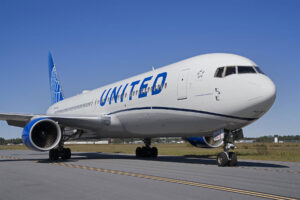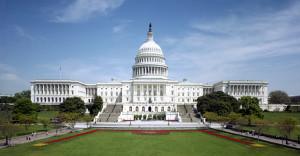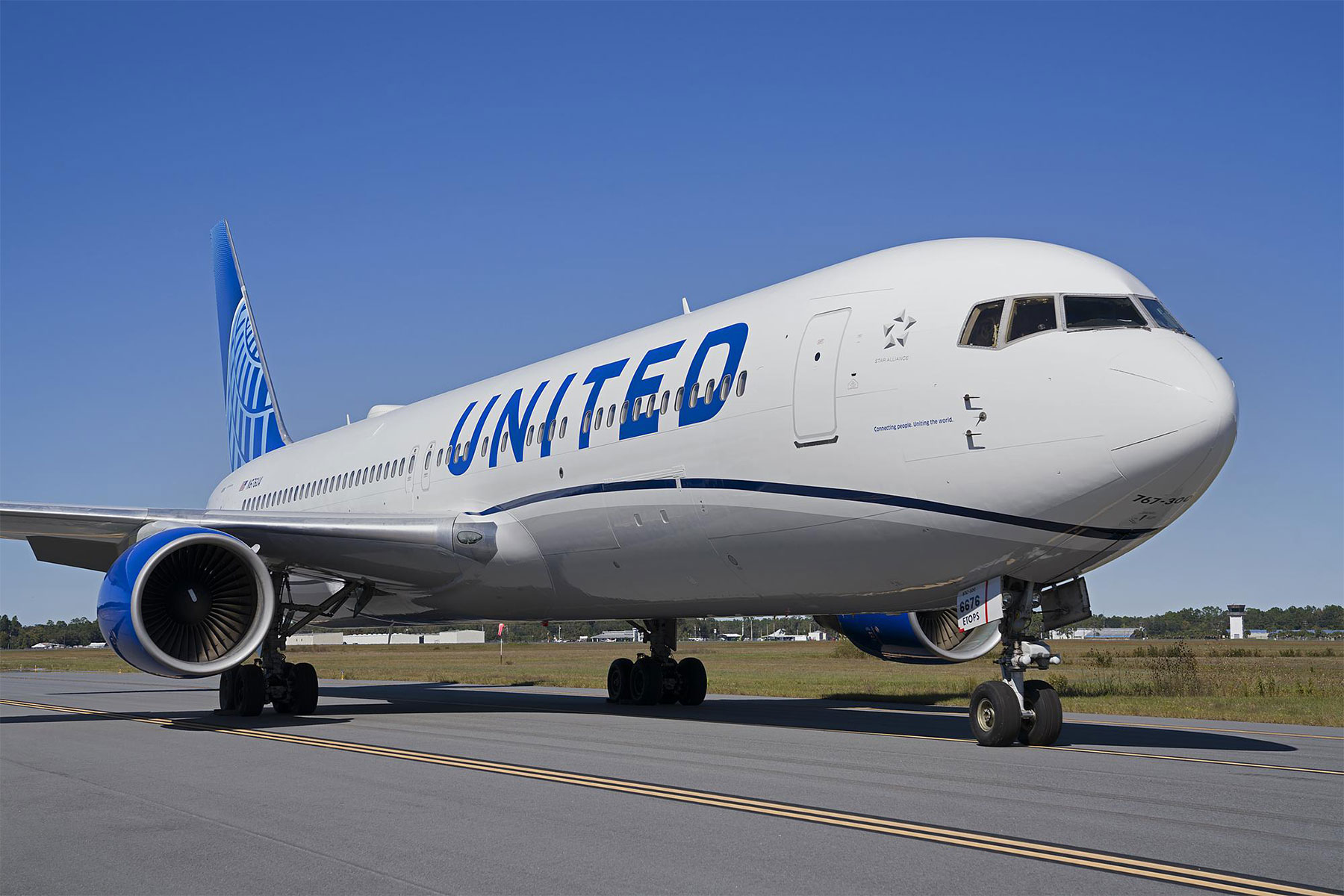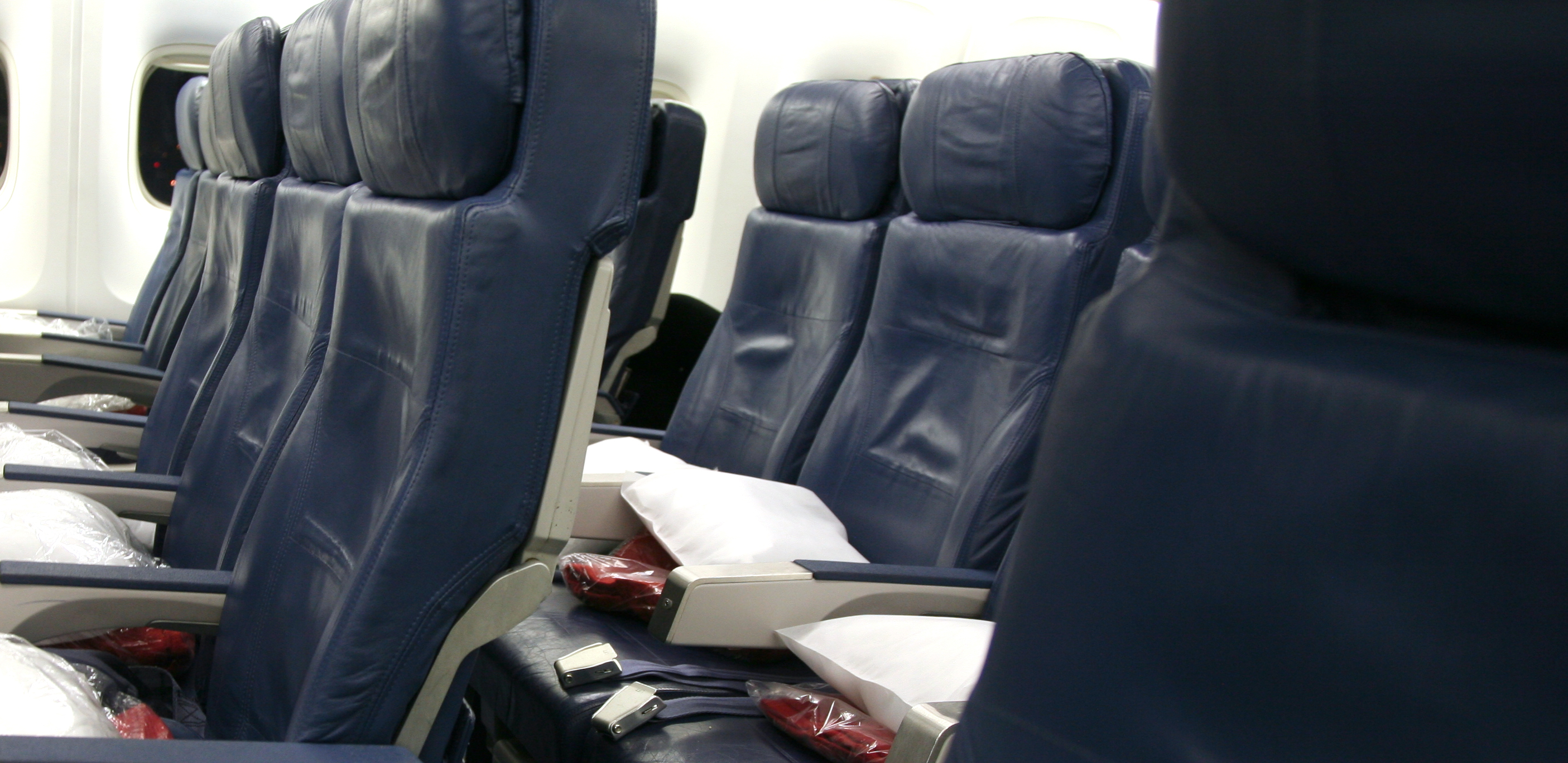The Weirdest Airlines to Ever Reach 30,000 Feet

Full-service network, cargo, and low-cost are a few business models that have proven successful in today’s airline industry. However, there are a handful of carriers in history that have questioned the status quo, coming up with unique business models aimed at making flying more convenient, fun, and interesting. These are the five weirdest airlines to ever exist in the United States—although some never even got airborne.
Hooters Air
Hooter’s Air was founded by Bob Brooks in 2003 when he saw potential to take his popular restaurant chain, famous for its waitress uniforms of short shorts and tank tops, to the skies. He bought a charter company called Pace Airlines, repainted the aircraft with the Hooter’s logo, and began service to 15 destinations out of it’s Myrtle Beach, SC hub. The airline had a successful beginning, offering fares from $99 each way, and serving smaller, secondary airports. The carrier’s risky business model was to “put the fun back into flying” by putting some of its “Hooters Girls” on commercial aircraft.
The vision was exciting, but the initial success of Hooters Air really came from the perception of the airline, not the reality. A former pilot said, “There was a lot of intrigue about this airline, not because of necessarily what was going on on the inside, but more so what people perceived from the outside.” The thing about Hooters Air is that many people believed the flight attendants were Hooter’s Girls and wanted that experience, but in actuality, they were FAA-certified flight attendants that wore professional uniforms, served snacks and drinks, and gave the safety demo – the same as what you see today. One former flight attendant explained that each flight did have two girls from local Hooters restaurants onboard that would play games with the passengers and ask them trivia questions, but it was not the crazy flight that people expected.
Although the airline found success in Myrtle Beach, it began operations while the industry was recovering from the 9/11 attacks when passenger traffic was still down. Furthermore, rising fuel prices and competition with low-cost carriers made it difficult to turn a profit, and the airline shut down in 2006.

Pet Airways
Pet Airways had a unique vision, focusing its operations on an untouched corner of the industry. The airline was based out of Delray Beach, FL, and claims to be the first carrier fully dedicated to air transportation for pets. It treated it’s “pawsengers” like regular flyers – placing them in the cabin, not in cargo.
Although Pet Airways shut down in 2011, it did operate for two years, shuttling thousands of pets to 14 destinations across the United States. Pet owners who were concerned about sending their pets in the cargo hold on commercial airlines could pay anywhere from $500 to $1200 to send them on Pet Airways instead. The airline had specialized On-Board Pet Attendants that fed, watered, walked, and were responsible for the overall well-being of each animal before, during, and after the flight. Today, Pet Airways is not currently operating; however, its website is still up and running and it is active on social media – so maybe we’ll see a reboot in the near future.

Aero Icarus/Wikimedia
Casino Express
Founded in 1987, Casino Express was an airline solely dedicated to flying passengers to the Red Lion Hotel and Casino in Elko, Nevada. The carrier flew nonstop from cities such as Seattle, Portland, Los Angeles, Phoenix, and El Paso on Boeing 737-200 aircraft and offered round-trip fares for as low as $49. The cheap tickets were possible due to the high expectation of gambling at the casino, which is a primary source of income for the small Nevada town. The aircraft sported fun liveries, including the King of Diamonds, Queen of Hearts, and Ace of Clubs.
In the carrier’s prime, it served 75 cities across the West and Midwest United States and delivered 40,000 tourists a year to Elko. The hotel earned millions of dollars of revenue and the express flight proved to be a great weekend getaway for gamblers. Casino Express operated for nearly 20 years, but was sold to Xtra Airways in 2005 and the Elko service was suspended in 2006.

Smokers Express
Casino Express was not the only airline serving a niche market. After the ban of smoking on almost all flights in the United States, two businessmen saw the need to create an airline that was smoker-friendly—but how was this possible with the new regulation? Well, the two found a loophole and decided to create Smokers Express as an exclusive “travel club” that required a $25 membership to be a part of. This allowed them to get around the smoke-free airline regulation because it was not a traditional carrier.
Smokers Express was appealing, boasting free cigarettes, lotto tickets, movies, meals, and 21+ only passengers. Furthermore, the founders wanted to put ads on their aircraft as part of their business model. Although the company claims to have sold between 5,000 and 6,000 “memberships” in 1993, the airline never raised enough money to get off the ground.

The Lord’s Airline
The Lord’s Airline was an interesting attempt at creating a religious-themed carrier. “Fly the heavenly skies” was the slogan for the Judeo-Christian carrier that planned to fly between Miami and Jerusalem three times a week using a DC-10 aircraft. Founder Ari Marshall explained, “the airplanes will have a biblical theme, with Bibles for the Christians and Torahs for the Jewish passengers.”
His ideas didn’t stop there though—each seatback would have the Ten Commandments written out, alcohol would be strictly forbidden, only religious movies would be shown, and there would even be religious classes on board for the kids. Marshall said in a comment in 1986, “The Russians have their airline. The British have one. So does Playboy. So why shouldn’t the Lord have an airline all his own?”
Although there was investor interest in the company, a string of problems doomed the carrier from the start, and honestly, the founders were a little mad. First off, the modifications the company wanted to make to the DC-10 aircraft never got certified by the FAA, and the delays made investors angry. Then things got tense between Marshall and his business partner, Theodore Lyszczasz.
Marshall claimed Lyszczasz was a power-hungry leader and said he would be the next Jim Jones—referencing the leader of the People’s Temple who convinced his 900+ followers to drink poison-laced Kool-Aid. Lyszczasz retaliated, saying Marshall was a con artist and was getting help from Satan. He said, “He openly claimed 45 percent of his power comes from the devil.
That is when we realized this guy is sick.” The straw that broke the camel’s back in the dream for the Lord’s Airline was when Lyszczasz went to Marshall’s home and threatened to kill him. Although he was acquitted, it was enough to ruin any chance of the airline taking flight.





















